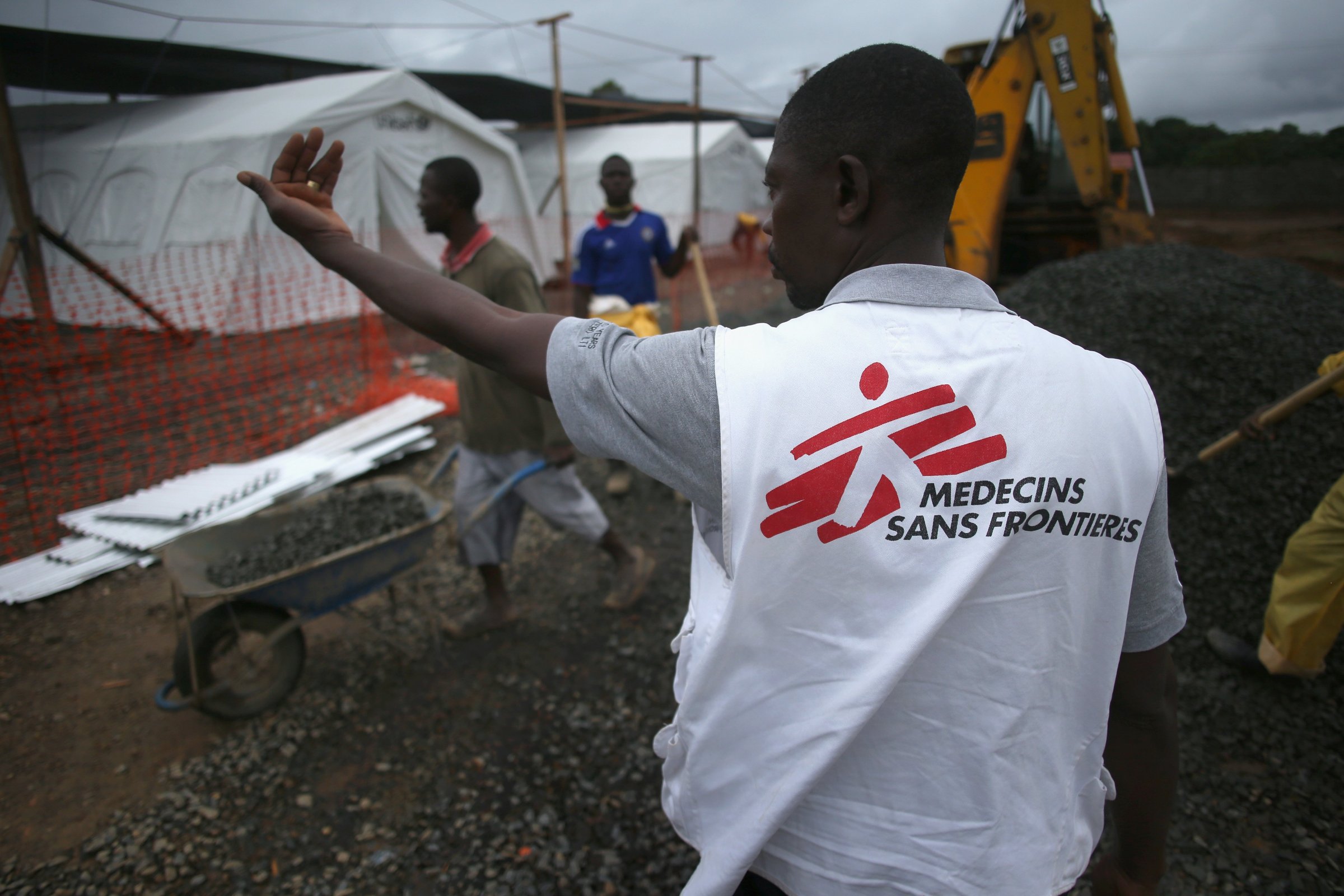
In its latest move to combat a growing outbreak of the deadly Ebola virus in West Africa, Doctors Without Borders/Médecins Sans Frontières (MSF) opened a new ward in Liberia this week to accept more people confirmed or suspected to be infected with the disease.
“There are some really urgent needs here, and much more needs to be done,” says Tim Shenk, lead field communications officer for MSF, speaking to TIME from nearby the new ward.
The new Ebola management center, called ELWA 3, took just two weeks to build, with the help of MSF staff members and local workers hired by the organization. It opened on Aug. 17, and as of Tuesday, it had 32 patients. MSF’s plan is to gradually increase the number of patients in the facility, as the ward is using a novice staff. MSF will slowly accept more patients as the workers get used to the procedures they must go through to protect themselves from contracting the Ebola virus.
The ward has 120 beds, and its layout is meant to reduce risk of exposure to other victims and those treating them. There’s a low-risk area where physicians and workers put on their protective equipment. After that, they can move on to the high-risk area, which is separated into two parts. Each side has four tents with 15 beds each. One side is for suspected cases, and the other is for confirmed cases. The ward is staffed by some of the MSF’s international staff members as well as local health care workers. The new facility has two doctors, with a third on the way.
The new facility’s first batch of patients are people with suspected Ebola who could not be admitted to a facility run by the Ministry of Health due to lack of space. Liberia has 834 confirmed cases of Ebola, with 466 deaths, per the World Health Organization. Worldwide, there have been 2,240 cases with 1,229 deaths.
“The needs of Ebola patients are greater than our capacity and it’s likely it will remain that way for quite some time,” says Shenk. “That’s why the center was constructed, and it’s certainly the case that there are few places where people can be admitted as Ebola patients in this city.”
Over the weekend, reports came out of Monrovia that patients in a temporary holding and quarantine center were missing as members of the community raided the facility. Shenk says that’s not the type of reaction they are experiencing, but that the event proves there needs to be more international support for educating and sensitizing communities on what Ebola is and how it can be prevented.
“Now, not only do we need to contain the outbreak, but we need to respond to the urgent needs of people affected, like kids,” says Shenk. “Schools have shut down, family members have died. These are very urgent social needs. It’s a disaster, and it’s in need of a greater response.”
More Must-Reads from TIME
- Why Trump’s Message Worked on Latino Men
- What Trump’s Win Could Mean for Housing
- The 100 Must-Read Books of 2024
- Sleep Doctors Share the 1 Tip That’s Changed Their Lives
- Column: Let’s Bring Back Romance
- What It’s Like to Have Long COVID As a Kid
- FX’s Say Nothing Is the Must-Watch Political Thriller of 2024
- Merle Bombardieri Is Helping People Make the Baby Decision
Contact us at letters@time.com